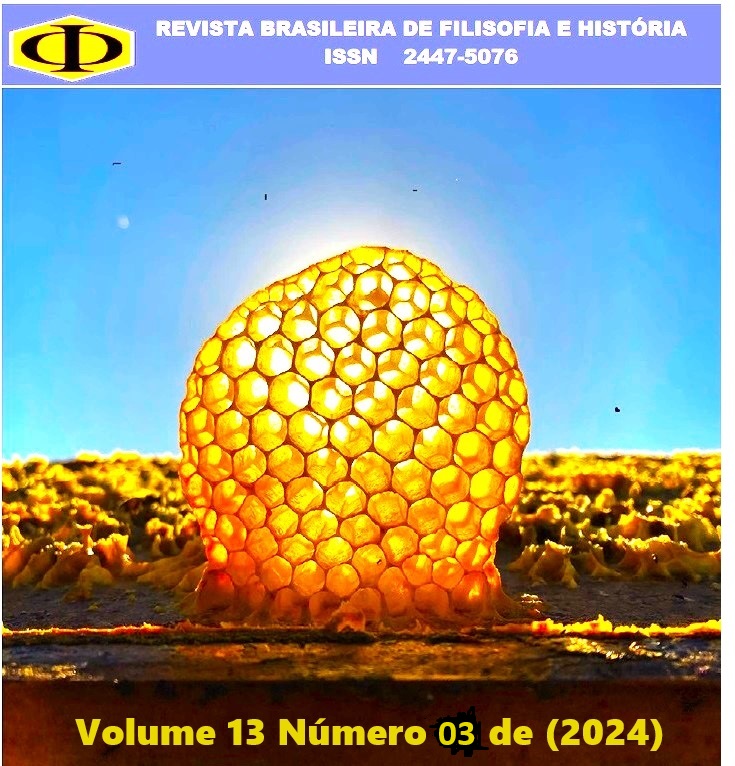A importância da leitura para crianças com autismo na educação infantil
DOI:
https://doi.org/10.18378/rbfh.v13i3.10990Keywords:
Reading; Autism; Early Childhood Education; Preschool; Inclusion.Abstract
The research addresses the importance of reading in the child development of children with Autism Spectrum Disorder (ASD) in the preschool period. The general objective is to analyze how the practice of reading can help in the cognitive, linguistic and social development of these children, in addition to contributing to overcoming communication barriers. Specifically, the study seeks to demonstrate how the school environment can be organized to encourage reading, examine inclusive methodologies adopted by early childhood education teachers and identify the most effective tools to encourage engagement in reading. The research was conducted through a bibliographical review, using works by renowned authors, such as Antunes (2001) and Amorim and Farago (2015), to discuss the pedagogical strategies that can be applied to encourage reading in children with ASD. The results indicate that a well-structured environment and the use of inclusive methodologies are essential to promote interest in reading and the integral development of these children. It is concluded that reading, when stimulated appropriately, plays a fundamental role in the development of the communicative and social skills of children with ASD, reinforcing the need for targeted and inclusive pedagogical practices in early childhood education.
References
ANTUNES, C. Como desenvolver as competências em sala de aula. 2 ed. Petrópolis: Vozes, 2001.
AMORIM, M. C. B.; FARAGO, A. C. As práticas de leitura na educação infantil. Cadernos de Educação: Ensino e Sociedade, Bebedouro-SP, 2 (1): 134-154, 2015. Disponível em:http://unifafibe.com.br/revistasonline/arquivos/cadernodeeducacao/sumario/35/0604 2015200353.pdf . Acesso em: 16 set. 2023
BAMBERGER, R. Como incentivar o hábito de leitura. 7. Ed. São Paulo: Editora Ática, 2002.
BOTINI, G. A. L; FARAGO, A. C. Formação do leitor: papel da família e da escola. Cadernos de Educação: Ensino e Sociedade. Bebedouro-SP, 2 (1): 134-154, 2015. Disponível em: http://www.unifafibe.com.br/revistasonline/arquivos/cadernodeeducacao/sumari o/31/04042014073856.pdf Acesso em:17 set. 2023.
CAGLIARI, L. C. Alfabetização e linguística: pensamentos e ação no magistério. 10 ed. São Paulo: Scipione, 2001.
CHARTIER, R. A aventura do livro: do leitor ao navegador. São Paulo: UNESP, 1998.
FOUCAMBERT, J. A leitura em questão. Porto Alegre: Artmed, 1994.
FREIRE, P. A pedagogia da autonomia. São Paulo. Paz e Terra, 1999. MANGUEL.A. Uma história da leitura. São Paulo: Companhia das Letras, 1997.
ORLANDI, E. P. Discurso e leitura. São Paulo: Cortez, 1988.
ZILBERMAN, R. A formação da leitura no Brasil. 3. Ed. São Paulo: Ática, 1999. 9dicas práticas de como incentivar a leitura infantil. Arvore de livros, 20. Disponível em: http://blog.arvoredelivros.com.br/leitura/como-incentivar- leitura-infantil/ .Acesso em: 17 set. 2023.
Downloads
Published
Versions
- 2024-09-21 (2)
- 2024-09-21 (1)
How to Cite
Issue
Section
License
Copyright (c) 2024 Davi Milan , Glaúcio Simão Alves , Fabiane de Oliveira Lima Schwingel , Adilson Samuel Suzana Massoia , Fabíola de Fátima Andrade Frimaio , Lidiane da Silva Rocha de Souza , Fabiane de Oliveira Lima Schwingel , Sandra da Silva Germani

This work is licensed under a Creative Commons Attribution-NonCommercial-NoDerivatives 4.0 International License.
Esta é uma revista de acesso livre, onde, utiliza o termo de cessão seguindo a lei nº 9.610/1998, que altera, atualiza e consolida a legislação sobre direitos autorais no Brasil.
Autores que publicam na Revista Brasileira de Filosofia e História (RBFH) concordam com os seguintes termos:
O(s) autor(es) doravante designado(s) CEDENTE, por meio desta, cede e transfere, de forma gratuita, a propriedade dos direitos autorais relativos à OBRA à Revista Brasileira de Filosofia e História (RBFH), representada pelo Grupo Verde de Agroecologia e Abelhas (GVAA), estabelecida na Rua João Pereira de Mendonça , 90 Bairro Petropolis em Pombal - PB doravante designada CESSIONÁRIA, nas condições descritas a seguir: 1. O CEDENTE declara que é (são) autor(es) e titular(es) da propriedade dos direitos autorais da OBRA submetida. 2. O CEDENTE declara que a OBRA não infringe direitos autorais e/ou outros direitos de propriedade de terceiros, que a divulgação de imagens (caso as mesmas existam) foi autorizada e que assume integral responsabilidade moral e/ou patrimonial, pelo seu conteúdo, perante terceiros. O CEDENTE cede e transfere todos os direitos autorais relativos à OBRA à CESSIONÁRIA, especialmente os direitos de edição, de publicação, de tradução para outro idioma e de reprodução por qualquer processo ou técnica através da assinatura deste termo impresso que deverá ser submetido via correios ao endereço informado no início deste documento. A CESSIONÁRIA passa a ser proprietária exclusiva dos direitos referentes à OBRA, sendo vedada qualquer reprodução, total ou parcial, em qualquer outro meio de divulgação, impresso ou eletrônico, sem que haja prévia autorização escrita por parte da CESSIONÁRIA.













